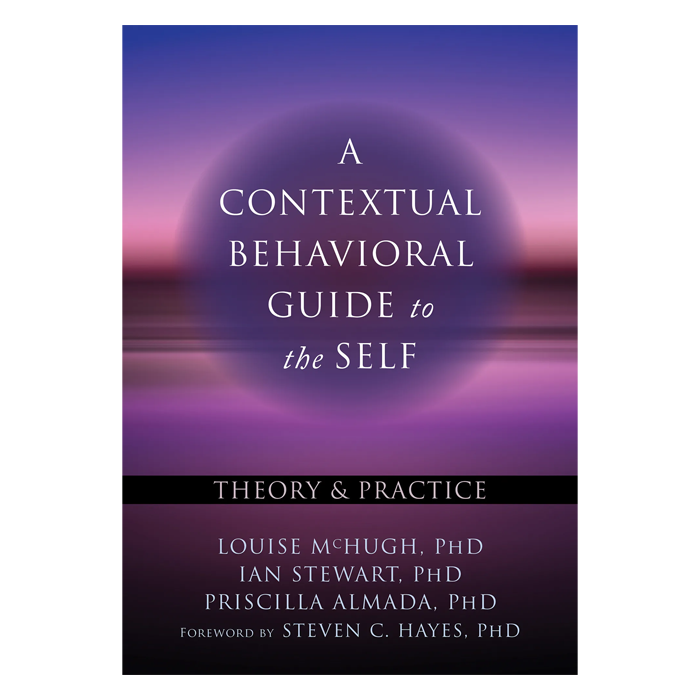New Harbinger Publications
A Contextual Behavioral Guide to the Self (eBook)
$72.95 inc GST $66.32 ex GST
The self plays an integral role in human motivation, cognition, and social identity. That’s why observing the self is such an important element of acceptance and commitment therapy (ACT). However, for many ACT clinicians, it can be difficult to apply this complex theory in everyday practice. A must-have addition to any ACT practitioner’s library, A Contextual Behavioral Guide to the Self translates the ACT model’s most difficult—yet essential—process into easy-to-apply steps and user-friendly language. With this unique road map, clinicians will help clients develop empathy, compassion, and flexible perspective taking—leading to better treatment outcomes and better lives for clients.
Product overview
The self plays an integral role in human motivation, cognition, and social identity. A Contextual Behavioral Guide to the Self translates this difficult—yet essential—therapeutic process into easy-to-apply steps and user-friendly language. For many clients, it’s incredibly difficult to shed preconceived notions of “who they really are,” and negative perceptions of the self can lead to feelings of low self-worth that stand in the way of treatment. Furthermore, every client who partakes in acceptance and commitment therapy (ACT) must identify a self as part of their treatment, and clinicians often report that observing the self, or “self as context,” is the most difficult of all six core ACT processes. Problems with the self arise when clients orient themselves in the world and learn to relate to others, but these problems can vary considerably. For example, some clients may have deficits in developing a strong sense of self in the first place—particularly if they are diagnosed with autism spectrum conditions (ASC). Depressed clients or those with borderline personality disorder (BPD) may develop a skewed, negative sense of self, and those with narcissistic personality disorder (NPD) may develop an inflated sense of self. With this unique road map, you will learn to apply the complex theory of the self into everyday practice, and help all clients develop empathy, compassion, and flexible perspective taking—leading to better treatment outcomes and better lives for clients.










